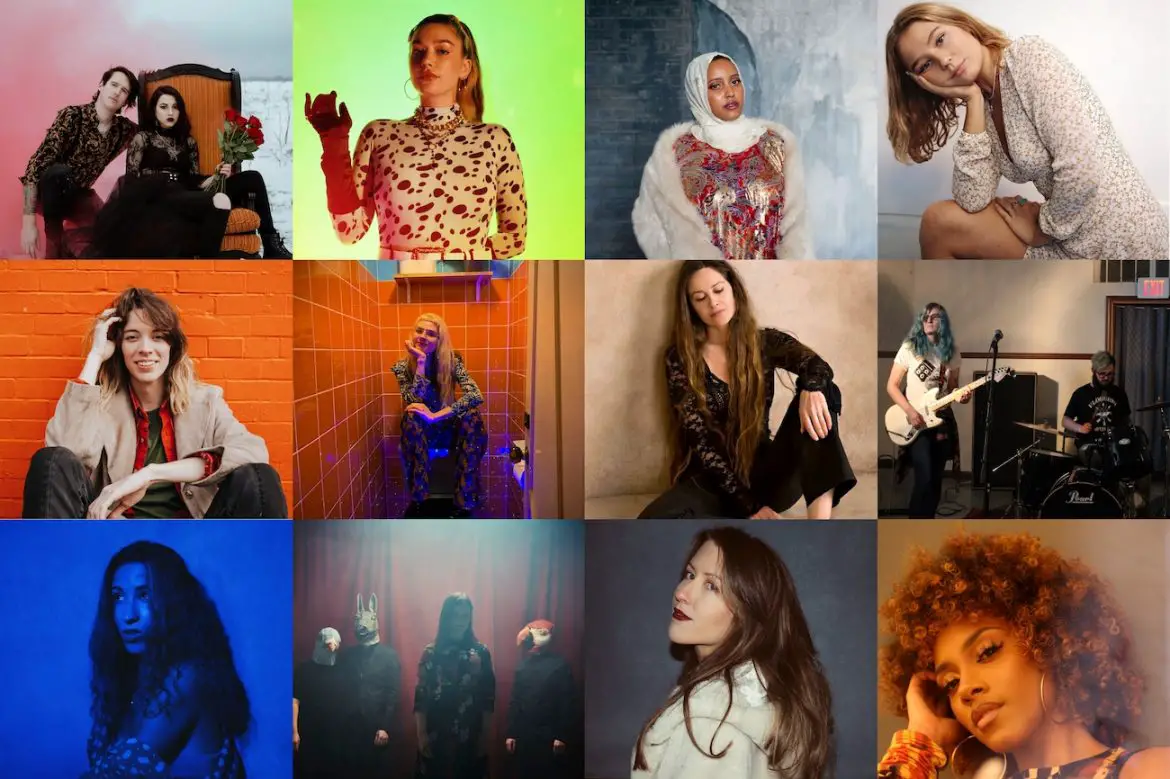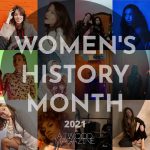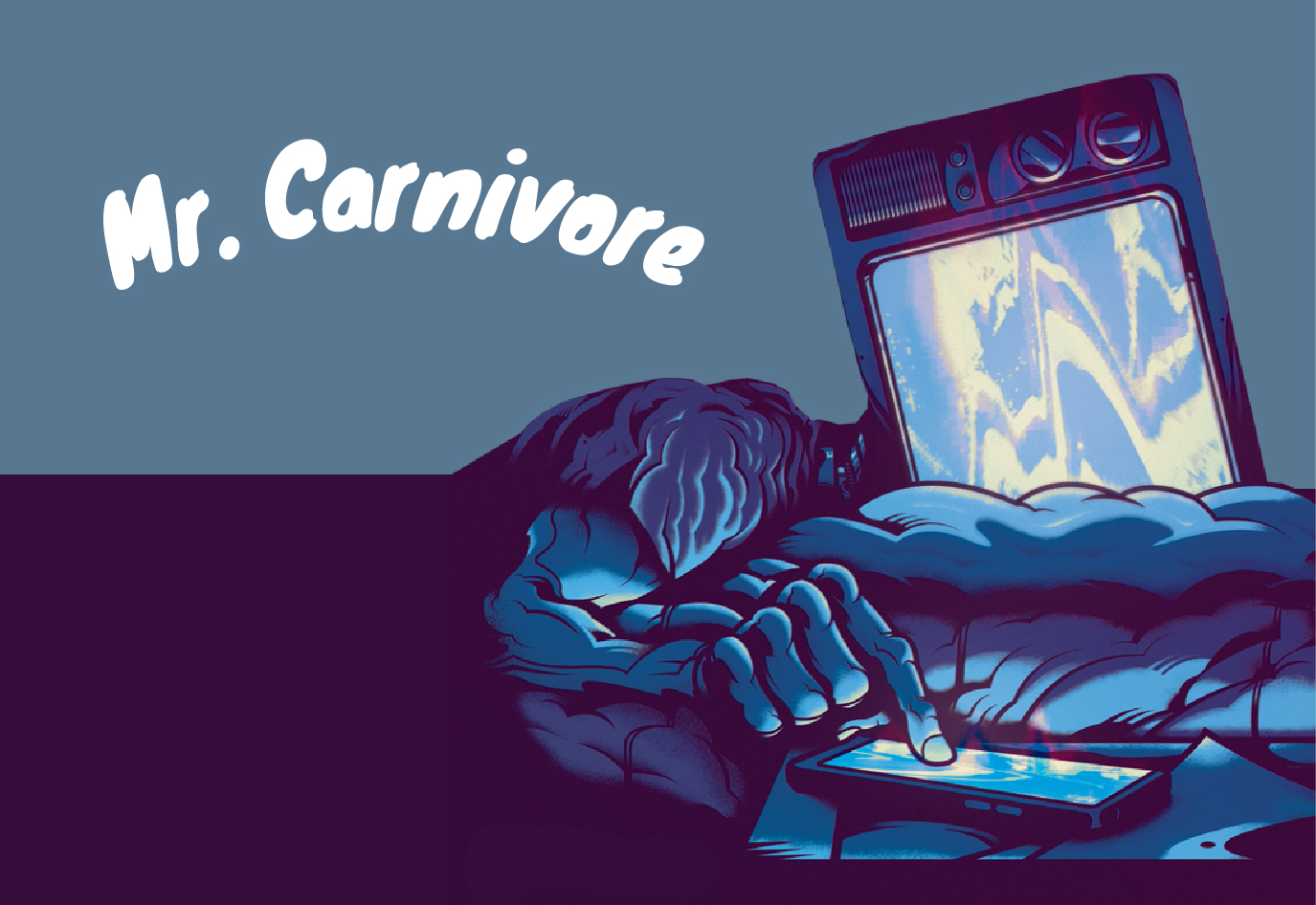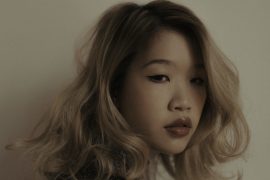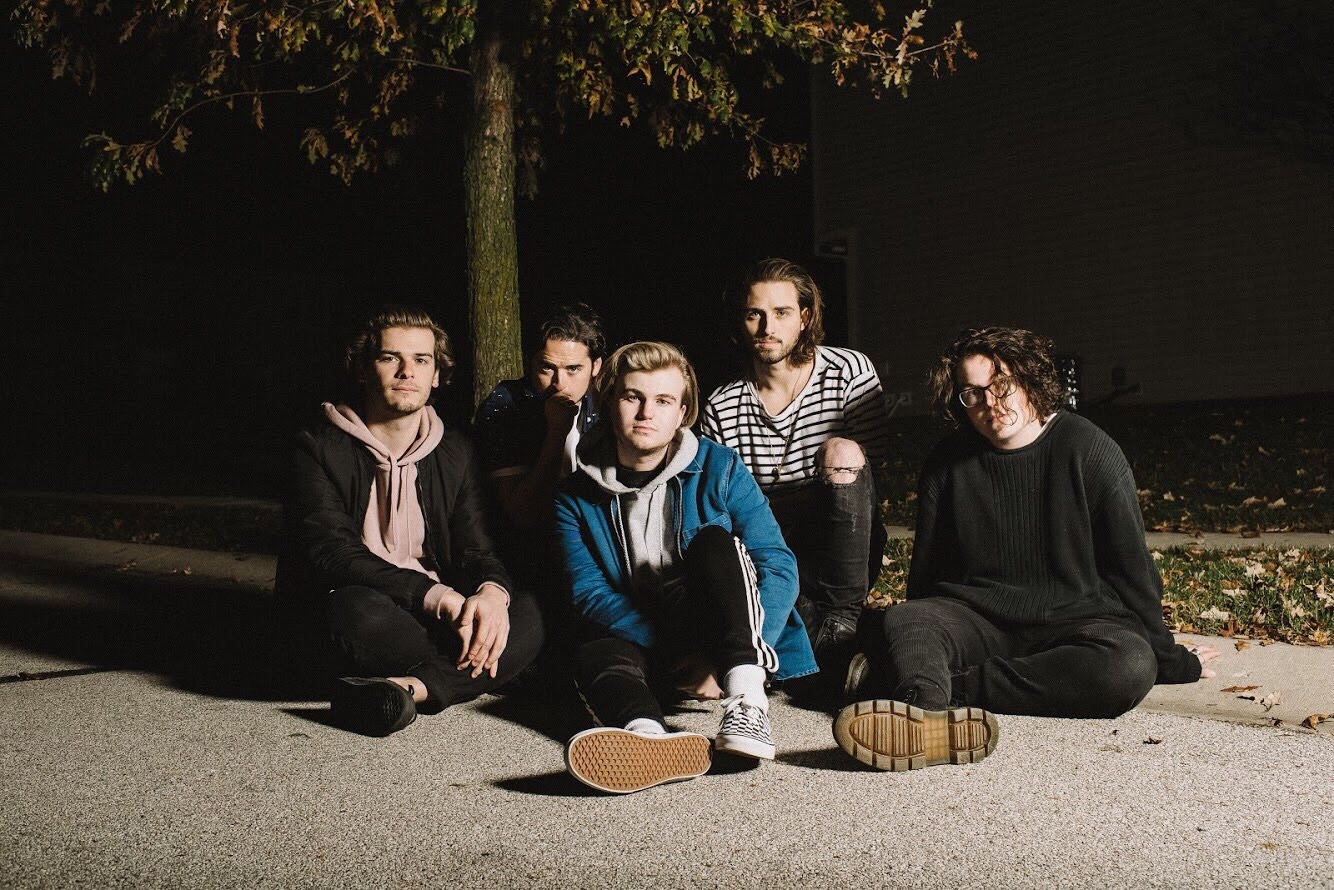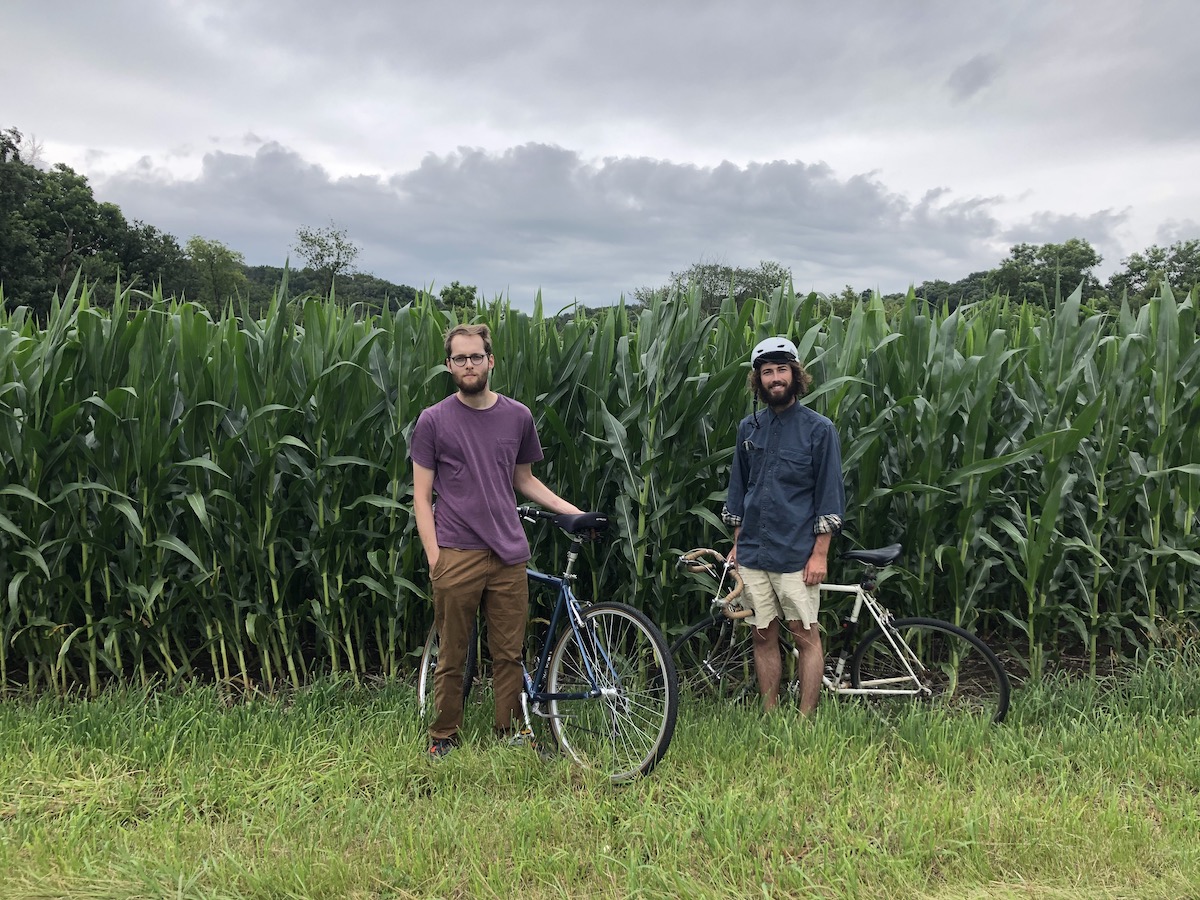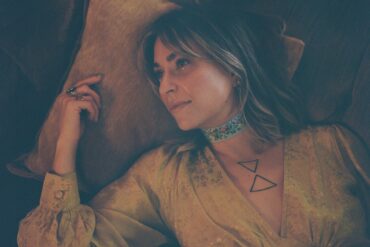Just as the pandemic began in 2020, a wave of protest and calls for equity were the anthems of the year, leading to important conversations surrounding inclusivity and equitable treatment for LGBTQ+ communities, BIPOC communities, and women. Intersectionality must be front and center in these conversations, and those conversations must continue into 2021. Today, and throughout the month of March, Atwood Magazine will be continuing those conversations in celebration of Women’s History Month — including artists and publicists alike discussing the state of the music industry and its role in gender equity.
In Part VII of our series, Atwood spoke with and highlighted 12 women in the industry, asking them to reflect on the ways misogyny can be combatted, how they perceive their place in the industry, and how we can choose to challenge the music industry for better representation.
– Adrian Vargas, Managing Editor
– Mariel Fechik, Junior Editor
•• •• •• ••
Deanna DiLandro, Savannah Cristina, BIIANCO, Dance Lessons, Diane Arkentstone, Billie Lindahl (Promise and the Monster), mimi bay, Timaj Garad, Brí, Asia Marie (Ashland), Mallory Hawkins (Double Double Whammy), and Melody Wachtel (Polyvinyl).
•• ••
:: Atwood Magazine Celebrates Women ::
 follow our Women’s History Month playlist on Spotify
follow our Women’s History Month playlist on Spotify 
:: Savannah Cristina ::

What kind of space do you want to carve out for yourself as a woman in this industry?
I want to create a space that allows myself, and others like me, to be multidimensional. Right now, female R&B artists are expected to make music that sounds the same, which results in the project sounding like one long song. I want to try every style and write to a wide range of production.
Misogyny can be so insidious in the music world. What are some ways you've been able to combat it and what kind of advice would you offer to women who are just coming into the industry?
I have experienced misogyny more times than I can count in the industry. Starting off as a small 19-year-old girl in Miami, I learned that I had to use my voice in more than just the studio. My advice would be to remain assertive. Don’t let anyone make you feel guilty for aggressively going after what you want.
How would you challenge the music industry in order to increase meaningful representation and provide better support for women?
There should be more respect given to our creative direction and ability to make executive decisions. Often times we are dismissed and our ideas are questioned due to preconceived underestimation of our intelligence.
Lastly, what are you working on currently? Anything coming down the pipeline you’re excited to share with fans?
I’m excited to share my newest upcoming release with fans. It features a personal favorite artist of mine. Be on the lookout for my new song “DRIP” featuring Jacquees.
:: BIIANCO ::

What kind of space do you want to carve out for yourself as a woman in this industry?
I want to lead the charge in helping the world see womxn at the forefront of music production and innovation. My goal is to be one of the reasons why people start referring to a womxn producer as just a “producer” instead of a female producer. When people think of electronic music, too often they picture men turning knobs and moving faders with womxn singing in the background or simply as the feature. I hope to change that by leading by example.
Misogyny can be so insidious in the music world. What are some ways you've been able to combat it and what kind of advice would you offer to women who are just coming into the industry?
My advice will always be: do not let men center themselves in the narrative of your success. Too often I’ve had men quietly (and not so quietly) try to take credit for the success of myself and many of my femme peers (“Oh I taught her that” etc.). Take ownership of your skills and shout them from the mountaintops. Society encourages womxn to be apologetic for their greatness by selling them on the lie that excellence is unlikeable. That’s a lie.
I’ve also found that men are held to an entirely different standard when it comes to their image and skills. We expect female musicians to all be Whitney Houston singers, toe a razor-thin edge of covert and overt sensuality, and tone down their confidence. The only way to combat this is for womxn musicians to continue doing whatever the hell they want to and the world will catch up.
How would you challenge the music industry in order to increase meaningful representation and provide better support for women?
Recognize how the game is rigged against womxn. Seek out independent womxn artists because it’s hard for womxn producers or artists going against the grain to get the label representation that might otherwise put them right in front of you. You might have to do some digging but it’s worth it in the long run. Put your artists in the room with womxn producers. Put womxn producers on the covers of your magazines. Laud a female producer the way you would a Timbaland, Mark Ronson, or James Blake. I guarantee they’re just as good, they’re just not as visible.
Lastly, what are you working on currently? Anything coming down the pipeline you’re excited to share with fans?
I currently am finishing up my debut mixtape. Have a new single and music video game due out in April but I did just release my debut book of poetry and my first single of 2021 “teeth bared.”
:: Dance Lessons ::

What kind of space do you want to carve out for yourself as a woman in this industry?
Production and Songwriting.
Misogyny can be so insidious in the music world. What are some ways you've been able to combat it and what kind of advice would you offer to women who are just coming into the industry?
The music industry’s still such a heavily male-dominated arena. I’ve read just 2% of music producers were female in 2018 and 22% of chart-topping performers between 2012 to 2017 were female artists. One way to make a difference is by supporting other women. I’ve been trying to focus more on that – connecting and working with female mastering and mixing engineers. The more we work together, the greater difference we can make. We need to break the stigma that men are better at technology than women and hire female mixing engineers, producers, and songwriters, and crucially, pay them the same wage. That’s a starting point. I’m very fortunate to be surrounded by two wonderful band members and a team who firmly believe in my technical and musical abilities.
How would you challenge the music industry in order to increase meaningful representation and provide better support for women?
It begins with allowing girls to make mistakes. I feel that one of the differences in how we’re brought up differently is that boys are more often allowed to fail, experiment, and make mistakes. Girls are taught to “perform well” and “act proper,” it’s all outdated societal norms. Making tech training for girls more accessible would be a positive change. I’d like to see more opportunities that call specifically for female producers and mixing engineers. It’s as much about changing the narrative as it is about helping women reach a higher status within their roles. I can’t wait for the day when we don’t have to discuss this anymore, because it will mean the playing field has been leveled.
Lastly, what are you working on currently? Anything coming down the pipeline you’re excited to share with fans?
I’m working on a lot of new music, mainly for Dance Lessons and some remixes. We’re about to release our third single next month, which we’re all super-excited about. It’s a great track (am I allowed to say that about our own music?). The future’s promising. I do believe the balances are shifting – slowly but we’ll get there!
:: Deanna DiLandro, Singer/Songwriter, Creative and Co-Founder, Weird Sister Records ::

What kind of space do you want to carve out for yourself as a woman in this industry?
I want to carve out a space of authority that is never questioned. I want to be taken seriously as a woman working in a male-dominated industry. I’m smart, hard-working, have great taste and am completely awesome and multi-faceted. There’s literally no reason I should feel small in an industry that is supposedly highlighting women like me.
Misogyny can be so insidious in the music world. What are some ways you've been able to combat it and what kind of advice would you offer to women who are just coming into the industry?
The main and arguably most important way I’ve been combating misogyny while working in music by focusing on what’s important: the music and the artists. Generating a strong relationship with artists and their music has kept me sane when dealing with these instances in a work environment.
How would you challenge the music industry in order to increase meaningful representation and provide better support for women?
I would challenge the industry to talk about this more. It seems that in most cases music companies turn a blind eye to how they can be improving their relationships with women on their teams. I challenge industry leaders to speak to women, trans and non-binary people, ask them what can be done to make them feel supported, seen and heard, and then LISTEN by making changes supported by action.
Lastly, what are you working on currently? Anything coming down the pipeline you’re excited to share with fans?
I’m so pumped and utterly thrilled to share that I am launching a women-led record label/collective, Weird Sister, with Madison Hetterly (Indie Witches). Sick and tired of the white dude music business machine, we are striving for a healthier label model to serve as a safer space for women, trans, and non-binary people in creative industries. By generating a strong relationship with artists, built on trust and passion for their work, we will use community and brand outreach to explore new and exciting ways to support artists in all aspects of their releases.
:: Diane Arkenstone ::

What kind of space do you want to carve out for yourself as a woman in this industry?
I think of myself as a strong, successful woman and leader, who is a powerful example to others who have had to deal with hardships and abuse.
Misogyny can be so insidious in the music world. What are some ways you've been able to combat it and what kind of advice would you offer to women who are just coming into the industry?
When I was signed to a label, I encountered a lot of misogyny and sexual harassment. That gave me the determination to start my own label and publishing company, no matter how much longer it took. At that moment of decision, I was then a great success, regardless of album sales. It is the number one thing, to me, to stand on my own and put forth the energy of power and self-assuredness, tho I had no idea how to go about starting a record label. One day at a time and a lot of research over a number of years gave me and my record label, Neo Pacifica Recordings, a solid foundation that has cumulated into a very successful woman-owned and run, Indie label.
How would you challenge the music industry in order to increase meaningful representation and provide better support for women?
So many women have taken up the torch now and our power and energy are increasing exponentially. There is an energy shift, as the balance is moving back to feminine, nurturing energy, that has been so desperately needed.
Lastly, what are you working on currently? Anything coming down the pipeline you’re excited to share with fans?
I just released a singIe and fun video in January titled “Beyond the Golden Sea.” I also have a beautiful new album coming out this May with two singles being released soon. I wrote it to help soothe, heal, and find balance in this world as it races towards a new era.
:: Billie Lindahl (Promise and the Monster) ::

What kind of space do you want to carve out for yourself as a woman in this industry?
I want to do what I do, be human, have meaningful connections. And also have fun and play.
Misogyny can be so insidious in the music world. What are some ways you've been able to combat it and what kind of advice would you offer to women who are just coming into the industry?
I think it is important to sometimes pretend to have the confidence of a man. Would Dave Grohl be ashamed of this piece of lyric or this riff? Is something I can ask myself in the mirror. If the answer is no, then I continue. Another very important thing is to not compete or feel a rivalry with other women. We should help each other out and write songs together. There is room for everyone, that is my firm belief.
How would you challenge the music industry in order to increase meaningful representation and provide better support for women?
It is a change that needs to come from within. it is very easy to get lost in the music industry since there are ideas of feminism and freedom that go hand in hand with internalized oppression and commodification. I think we as artists should dig and really try to investigate where the real freedom is at.
Lastly, what are you working on currently? Anything coming down the pipeline you’re excited to share with fans?
We have an ep called Chewing Gum that will be released this spring, April 30. And another ep in the making that is scheduled for the fall of next year.
:: mimi bay ::

What kind of space do you want to carve out for yourself as a woman in this industry?
Misogyny can be so insidious in the music world. What are some ways you've been able to combat it and what kind of advice would you offer to women who are just coming into the industry?
I try to remember that my creativity is important and needs to be protected and so I act accordingly by listening to what I think is right and not letting people walk all over me. Know your worth, surround yourself with good people, and stand up for what you believe is right.
How would you challenge the music industry in order to increase meaningful representation and provide better support for women?
Not settling for sitting on a couch in a session being expected to only write lyrics or vocals. As a female producer and instrumentalist, I would like to encourage music creators that aren’t men to be a bigger part of the creative process. We need more female producers and instrumentalists to inspire future generations of creators and welcome non-male producers.
Lastly, what are you working on currently? Anything coming down the pipeline you’re excited to share with fans?
I’m very excited to finally release my project this spring. I’ve kept it to myself for what feels like ages and I can’t wait for people to take it into their lives and make it theirs.
:: Mallory Hawkins, Label Director, Double Double Whammy ::

What kind of space do you want to carve out for yourself as a woman in this industry?
I hope to display to other young women interested in music that their perspective is important and NEEDED in the industry. The prejudices that nonmen face in their daily lives can be directly applied to the prejudices used against artists in a capitalist industry. As soon as I discovered what I was worth, it became intuitive to protect and elevate the artists I represent (even when that artist is myself). I used to sit in meetings with only men and feel isolated, but I quickly realized that it is times like those that you must speak up louder than ever. It doesn’t require an alpha personality to break through the wall, there is so much strength in empathy — it is my strongest tool.
I spent so many years of my life struggling to break through the boy’s club mentality of indie music that I started to question my self-worth. It feels impossible to find validation in the industry through nonmen because so many of them are hidden behind the scenes doing the hard work. Don’t wait to break through the boy’s club, trust your ear, start your own label/brand/company. We need you!
Misogyny can be so insidious in the music world. What are some ways you've been able to combat it and what kind of advice would you offer to women who are just coming into the industry?
Find colleagues you trust and hold on to them tight. Do not seek validation of your own ideas through men, even though they are sometimes the only ones around. And don’t apologize for speaking up, just speak up. And know when to take time away from the industry itself and indulge in the music that got you there in the first place.
How would you challenge the music industry in order to increase meaningful representation and provide better support for women?
I would challenge the men of the industry to not only elevate the women in their life but know when to step back and let them take the spotlight. The music industry needs foundational change, and that means men relinquishing power to make way for new perspectives. And more female engineers! Please!
:: Timaj Garad ::

What kind of space do you want to carve out for yourself as a woman in this industry?
I want to be able to have my voice and work exist in a space that is brave and honest enough to speak truth to my experiences and perspectives and inspire others to do the same. As a Black Muslim woman, a lot of people have opinions on how someone like me should navigate the industry and what my “place” could be in it (mostly that I don’t have one), and I want to disrupt that and just exist as the fullest expression of myself and my art. There is power in taking up spaces we’ve been denied, especially doing so joyfully and with style.
Misogyny can be so insidious in the music world. What are some ways you've been able to combat it and what kind of advice would you offer to women who are just coming into the industry?
I think it’s important for women to support other women and I’ve always centered that in how I approach my work and who I amplify when I have the opportunity. Everyone has a responsibility to examine where they have power in their lives to contribute to systemic change and work towards liberation, but as women, it’s also important that we build networks that act as safe spaces that can help us to navigate and heal from the misogyny we experience in the industries we take up space. However, it’s important for men to do the work of calling out other men and making the industry safer for the women around them.
I would tell fellow women in the industry to build a support system, be kind to yourself, and know that it’s not your fault, nor is it your sole responsibility to change this about the industry. However, it’s also important to understand that women at identity intersections that are even further marginalized based on race, sexual orientation, religion, etc., experience misogyny differently and more severely, therefore it IS our responsibility to use our privilege wherever we find it to support other women who may have additional barriers. Systemic change is a slow burn and it’s important that we as women support each other, be unapologetically who we are as artists, and carve out safe spaces in the meantime.
How would you challenge the music industry in order to increase meaningful representation and provide better support for women?
I think every institution of power within the music industry from record labels to radio/streaming services, press and beyond need to look at who currently holds power. What does your board room look like? Do you see women represented in a meaningful way? And not only that, do you see BIPOC women? Muslim women? Disabled women? Queer and trans women? If not, ask yourselves why that is and who has the power to change that. Representation is important at the decision making level because that’s what contributes to systems-level change. Also there needs to be avenues for holding misogynistic men/ predators accountable, despite their status in the industry. I believe in pathways for transformative justice, but for that to be possible, harm needs to be acknowledged and gatekeepers need to be removed from the gates.
Lastly, what are you working on currently? Anything coming down the pipeline you’re excited to share with fans?
I just released my debut EP Blooming at the Mouth. The EP features 5 songs with a combination of spoken-word and anthemic as well as soulful hooks/verses sung over genre-blending instrumentals with hints of R’n’B, Hip Hop, Pop, Afrojazz, and EDM, produced by Taabu, and Executive Produced by Raz. Blooming at the Mouth is a rebirth through breaking long-held silences and speaking truths. It’s about all the truths that are planted deep within us, waiting for their season, their bloom. I also have a single out called “Black Gold” which is a celebration of Black Muslim Womanhood and it’s got a music video as well. Other than that, I’ve been writing new music and working on a new single that I hope to release in May so stay tuned for that!
:: Brí ::

What kind of space do you want to carve out for yourself as a woman in this industry?
I would love to carve out a space in the industry where true talent, hard work, gentleness, and kindness can be shown to prevail. There are so many artists trying to make it right now who, like me, started off with no connections, no money, no grant, and who had to figure out most aspects of the industry for themselves. It is a slow slog and, unfortunately, sometimes people disregard their values in order to fit a mold that could propel them forward more quickly or they step on others in their rush to the top. The reality is that we can all just as easily choose to raise each other up instead. I would love to carve out a space where no person has to fight for equality and where all of humanity come together to support true talent at any level; regardless of gender, race, sexuality, you name it.
Misogyny can be so insidious in the music world. What are some ways you've been able to combat it and what kind of advice would you offer to women who are just coming into the industry?
I have been amazed by how many similar experiences we as women in the music industry have all shared, particularly in the live music sector. For me, the worrying part is that I was so desensitised to it that I actually believed I didn’t know as much as anyone who spoke assertively to me. It wasn’t until I formed some lifelong friendships with a group of other women in the industry that I understood the issue was very real and that I had experienced it too. When dealing with misogyny, I now try to communicate very clearly and very firmly. I would advise women who are new to the industry to be aware that this issue exists, to surround yourself with a group of supportive women, and to always stay true to yourself. If someone is pushing something on you that isn’t true to your vision, really stop and think about that. It’s your vision; it’s not wrong and it can be done. While it’s crucial to be open to constructive criticism, I would say allow the advice that comes from your gut that same weight.
How would you challenge the music industry in order to increase meaningful representation and provide better support for women?
There is a lot of impressive work being carried out at the moment that I am inspired by. I think Keychange, in particular, is an incredible spreader of awareness on a global scale and it is amazing to see more of the industry being challenged by their initiatives and asking themselves ‘Why haven’t I aired any music by women on my show?’ or ‘Why are there no women on my festival’s line-up?’. We’ve Only Just Begun gave an incredible response to the excuse that ‘There just aren’t enough talented women out there to book/air’ with their directory of 600+ talented female and non-binary musicians. At a smaller and equally important level, I think we challenge it daily simply by having a presence and the confidence to exist in a male-dominated industry and to continue to back ourselves and our vision despite the odds.
Lastly, what are you working on currently? Anything coming down the pipeline you’re excited to share with fans?
I’m elated to share that I will be releasing my debut album ‘Hide’ in October 2021. I often felt that I should make myself small and had a fear of being resented if I really put myself out there but the reality is; with or without those fears, music will always be my passion. This album challenged me to throw all of those doubts out the window and to go full steam ahead ‘From now on I won’t hide.’ ‘More Than’, the most recent single from the upcoming album is out March 19th 2021.
:: Ashland (Asia Marie) ::

What kind of space do you want to carve out for yourself as a woman in this industry?
I don’t want my gender to have anything to do with my space in this industry. I’m a person and an artist and I just want to remain true to myself and my craft. I’ve sort of experienced what it’s like to compromise who you are for success and it’s not worth it. I don’t think I ever intended or wanted to compromise who I was, but the music/entertainment industry definitely has a way of making you question every single little thing about yourself. And if you don’t have a strong grasp on who you are, what you want, and what you believe in, then you will get taken advantage of. Sometimes that happens over time and in the most subtle ways so you really need to be ready to be your own advocate and fight for what you believe in. It’s not like there’s a big scary person in a black suit in the corner just planning your demise (I mean there could be haha) but I think more often, there’s just a lot of people trying to make it, trying to be heard and get the most credit. It can sort of turn into survival of the fittest and there’s nothing healthy or fun about that. Finally one day I was like “What am I doing? I’m not enjoying my passion anymore” and that was a huge turning point for me.
Misogyny can be so insidious in the music world. What are some ways you've been able to combat it and what kind of advice would you offer to women who are just coming into the industry?
I touched on some of this in my previous answer. But to be honest, this is something I am still working on combating. I feel like the misogyny issue is an internal and external issue. Every now and then I find myself behaving a certain way just to avoid the possibility of being treated a certain way. I remember times when I felt like I needed to dress down and talk with a deeper voice in hopes that I would be taken more seriously or not be disrespected. Sadly, this has proven effective at times. Other times, I’ve giggled after every sentence and told a businessman that his idea for MY vision was better just so I wouldn’t offend him. All this is definitely cringe-worthy. It’s like “why wouldn’t I just stand up for myself and tell it like it is?” I’ve had a lot of trauma in my life and it’s stripped me of a lot of my confidence. But I don’t blame myself because that would put me right back on the hamster wheel. Making mistakes is vital to growing up and learning who you are. If it weren’t for these experiences, I wouldn’t be here today telling you that misogyny still exists and that there are both internal and external changes that need to be made by all parties.
As simple and cliche as it sounds, I think it’s important for women to just be themselves in every situation. We need to exercise confidence and not care what MIGHT happen or what anyone else might be thinking about our appearance, our gender, and most importantly our ideas and visions. We have SUCH a huge influence and we bring so much to every industry… to the WORLD. And we should never ever let anyone silence our voices. Let’s give men the opportunity to see where they’re wrong so that they can change. Some will and some won’t. But we can learn to love and accept ourselves exactly how we are and not let anyone influence that. We’re definitely making huge waves and it’s beautiful to witness and be a part of.
How would you challenge the music industry in order to increase meaningful representation and provide better support for women?
I think the music industry is definitely making an attempt to be more inclusive. I want to see more of a balance in the types of women being represented. And I’ll throw it out there just because I have a Lebanese-Palestinian background, I’d like to see more Middle Eastern Arab women being represented!
Lastly, what are you working on currently? Anything coming down the pipeline you’re excited to share with fans?
We’re currently rolling out our self-titled EP and some music videos to go along with it. And working on some new music for after that!
:: Melody Wachtel, Finance Clerk, Polyvinyl Record Co. / Co-Founder, Alien Heart Records / Member of Thotcrime ::

What kind of space do you want to carve out for yourself as a woman in this industry?
I want to exist and be seen as a visibly trans woman in the music world. I want to defy the expectation that trans women should have to “pass” in order to be respected, and I hope that in doing so I can show other trans people that they don’t have to do this either.
Misogyny can be so insidious in the music world. What are some ways you've been able to combat it and what kind of advice would you offer to women who are just coming into the industry?
At my personal record label, Alien Heart Records, our goal is to work with and support trans artists, including trans women, in promoting and marketing their music and distributing it in physical form. We also periodically release benefit compilations that benefit organizations that help and support trans women. With my main music project, Thotcrime, myself and the other women involved follow the example of other transfeminine artists in heavy music such as HIRS, who are uncompromising and outspoken about their transness and their femininity and in the issues they are passionate about.
As far as advice, I think that it is incredibly important to support other female artists, especially trans women in music. There is a great deal of bias and gatekeeping both among fans and in the press in the heavy music world, so one way to help foster a scene where we all can thrive is to be encouraging and use our platforms to help further our peers. I try to use my band’s platform to promote other women artists as often as I can.
How would you challenge the music industry in order to increase meaningful representation and provide better support for women?
Stop tolerating intolerant people. Stop making excuses for bands, fans, journalists, and others who gatekeep music scenes and harass women until they no longer feel safe making the music they love. Provide more material support for trans women especially, and don’t allow them to fall through the cracks.
— —
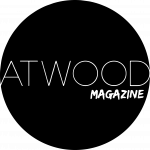
Connect to Atwood Magazine on
Facebook, Twitter, Instagram
Discover new music on Atwood Magazine
:: Atwood Magazine Celebrates Women ::
 follow our Women’s History Month playlist on Spotify
follow our Women’s History Month playlist on Spotify 

